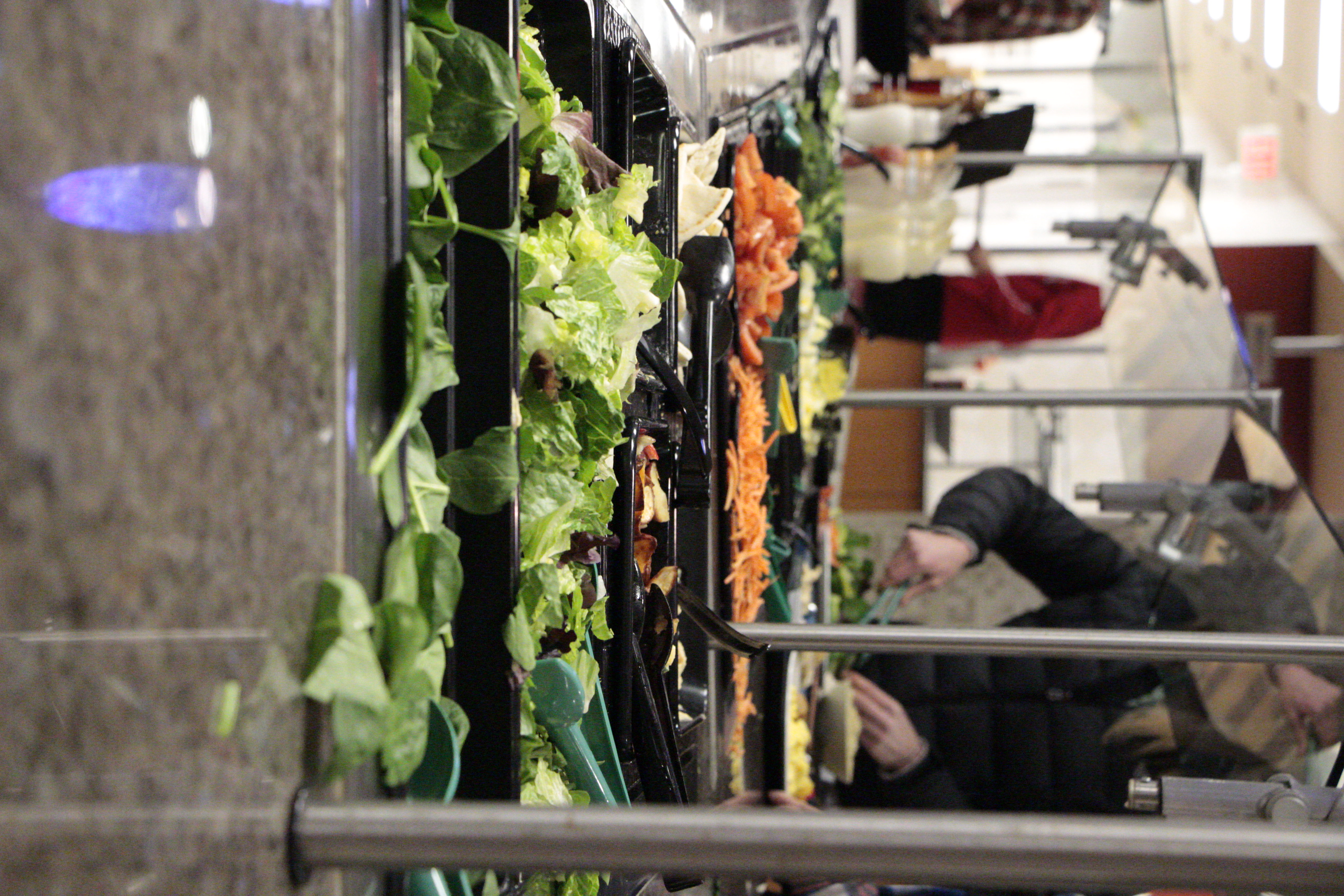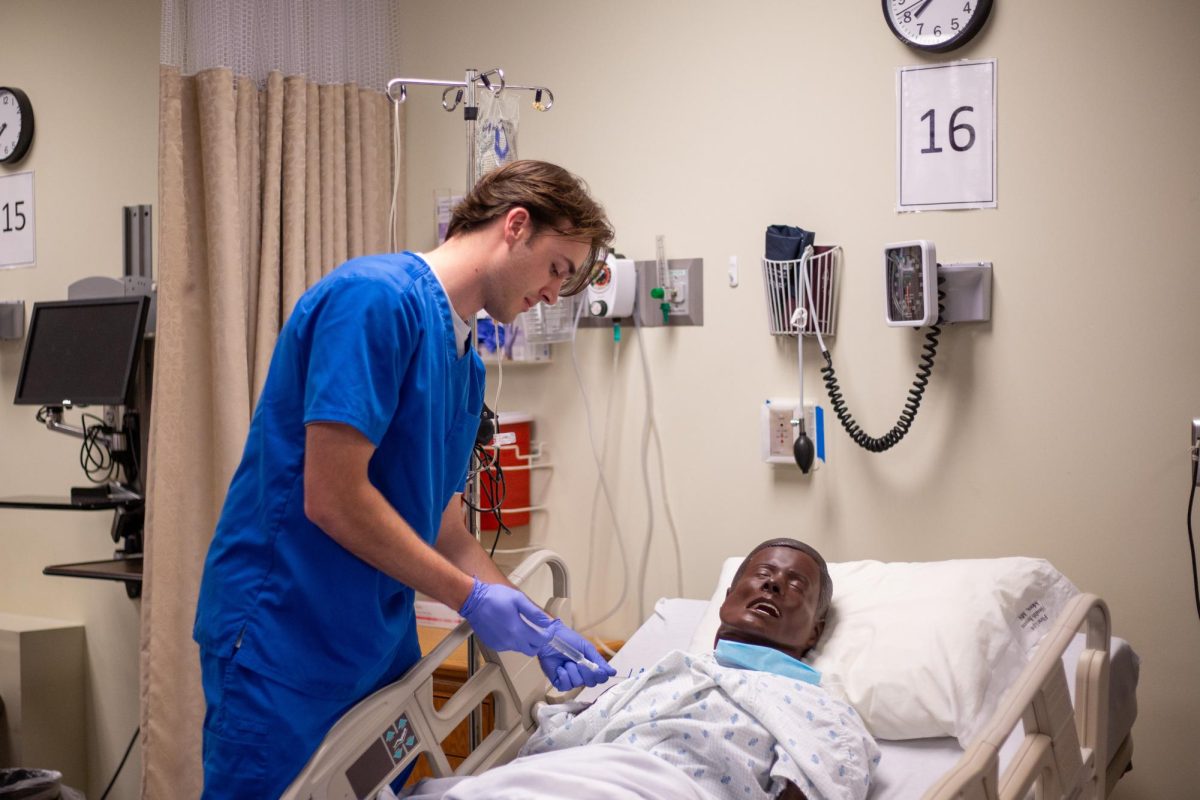Opportunities to compost at Bethel are limited, for now.
By Alayna Hoy
With the exception of a small plot in North Village, Bethel University does not compost its organic waste. Yet.
On Feb. 19, 10 members of the Green Council meet in the Student Life conference room to discuss signage for recycling and the possibility of composting in Bethel’s Dining Center and 3900 Grill.
“If a process like this is going to be done, we’re really going to need involvement from the community,” said Bob Schuchardt, general manager of Bethel’s Dining Services.
Based on random food checks completed throughout the year, Schuchardt estimates the DC generates between 140 and 170 pounds of solid food waste every meal.

All of that waste has the potential to be used for compost. Instead, it’s taken to landfills, where it’s prevented from reaching the oxygen it needs to decompose and nourish surrounding soil. Worse, organic waste trapped in landfills releases methane, a harmful greenhouse gas.
While Bethel donates food waste to Barthold Farms food scraps to feed free-range pigs, only production waste from preparation can be donated, items such as cucumber ends, not your half-eaten cheeseburger. All those leftovers on DC trays and in Grill cardboard boxes aren’t reused, recycled or composted – they’re wasted.
Members of the Green Council want to change this. They plan to discuss the opportunities and costs of off-site composting through Walters Recycling and Refuse, Bethel’s current waste services company. However, according to Mark Posner, Vice President of Facilities Management, Walters recently moved their waste site farther away and raised rates for Bethel’s current services.
“Budgets are super tight,” Posner said about composting and recycling efforts. “None of it’s free. It all adds up.”
Emma Hanlin, student co-leader of Creation Restoration, said Bethel needs to get more innovative about waste reduction at the source. Some objectives for reducing total food waste include days without trays in the DC and campaigns to increase community awareness.
Reducing total food waste will be important while composting questions remain. It is still uncertain whether composting through Walters will be affordable for Bethel, or if a larger on-campus composting site might be possible and more cost-effective. If Bethel does start to compost in the DC and Grill, the opportunity to place additional compost bins in student dorms would become a possibility as well.
For now, the Green Council hopes to at least start the implementation process, and to try and match the composting initiatives of nearby schools, such as University of Northwestern.
UNW pays for off-site composting in an effort to divert 50 percent of their waste from landfills by 2020. In 2017 alone, the university composted almost 300 tons of food waste, according to sustainability associate director Julie Cahillane.
“Each generation of students is going to expect better of us,” said Rebecca Seaberg, Bethel mathematics professor. “We are behind a lot of places because we’re not composting.”

![Nelson Hall Resident Director Kendall Engelke Davis looks over to see what Resident Assistant Chloe Smith paints. For her weekly 8 p.m. staff development meeting in Nelson Shack April 16, Engelke Davis held a watercolor event to relieve stress. “It’s a unique opportunity to get to really invest and be in [RAs’] lives,” Engelke Davis said, “which I consider such a privilege.”](https://thebuclarion.com/wp-content/uploads/2024/05/041624_KendallEngelkeDavis_Holland_05-1200x800.jpg)
















